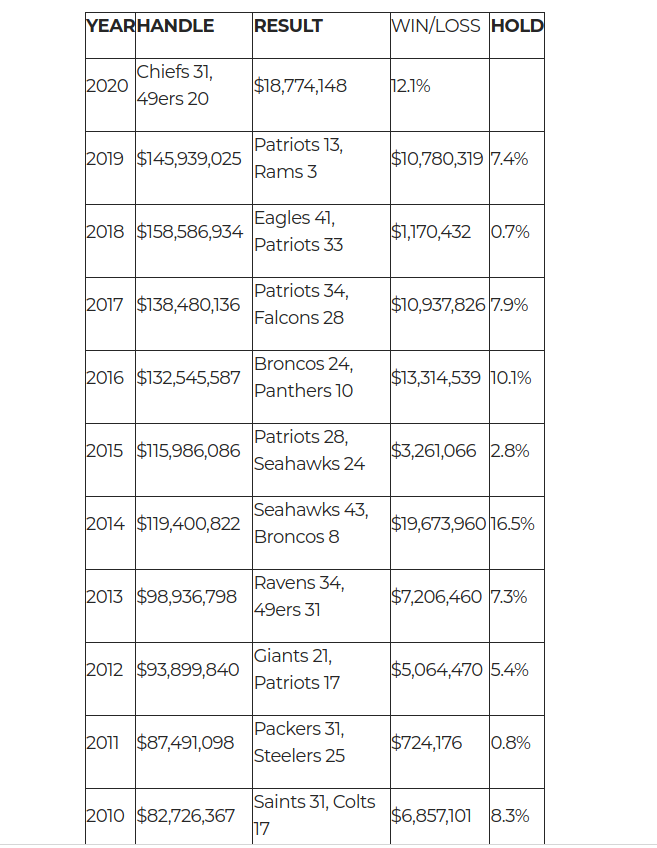
- Tennessee has authorized an ‘online only’ sports betting marketplace in the state.
- In addition to high fees and a double digit tax rate many of the state’s sports betting regulations are downright inexplicable.
- The most contentious is a requirement that sportsbooks hold at least 10% annually.
This week we’ll be looking at two states in the process of launching sports betting and going about it in the most bass-ackwards way possible. Today, we’ll cover Tennessee. Tomorrow, we’ll head to Virginia and after that we’ll have some general commentary concerning both and applicable to any other state stupid enough to let the lottery run sports betting. To quote Thurston Moore, lead singer of Sonic Youth:
“There’s a right way, a wrong way and a dumbass way.”
Both Tennessee and Virginia are doing it the ‘dumbass way’.
TENNESSEE SPORTS BETTING IS A SLOW MOTION TRAIN WRECK
When Tennessee authorized an ‘online only’ sports betting scheme it sounded at least somewhat interesting. The state has no casinos so the plan was to allow online betting companies to seek licensing in the state without any type of ‘tethering’ to legacy operators required. Sure, the licensing fees were ridiculously high ($750,000 per year) and the tax rate abysmal (20%) but the ‘online only’ setup looked like something that other states without a significant land based gaming ecosystem could duplicate and refine. If only the state lottery bureaucracy–the Tennessee Education Lottery aka TEL–could implement everything without completely screwing it up.
In the case of Tennessee, my initial instincts were correct. In April of 2019 I wrote an article entitled ‘Tennessee Could Soon Have The Country’s Worst Sports Betting Regulations’. Amazingly, they’ve managed to make them significantly worse since then. They’ve made such a mess that they’ll be hard pressed to get any sports betting companies to enter the market. For that matter, they’ll be hard pressed to get anyone to bet at a Tennessee regulated sportsbook. The TEL took a potentially lucrative new industry and made it into a gimmick game for the lottery–and a bad one at that.
Here’s the state’s sports betting regulations. I’ll be highlighting several of the most disastrous provisions just in case you want to follow along. The link below is to a .PDF document so plan accordingly:
TENNESSEE SPORTS BETTING RULES AND REGULATIONS
WHY SPORTS BETTING IN TENNESSEE IS A GREASE FIRE
There’s plenty of reasons why Tennessee’s sports betting is an unmitigated disaster. The most obvious–they’re letting the state’s lottery run sports betting. Letting the lottery run sports betting is a very bad idea. I’m not the only one that has this opinion–for example, here’s Roger Gros writing in the industry journal Global Gaming Business:
When the DC Lottery launched its long-awaited sports betting platform in June, GambetDC, it listed its even-money bets at -118, a far cry from the industry standard of -110. The diversion from the standard is part of the mission of lotteries when it comes to sports betting. Lotteries are way more risk-averse than commercial sports betting operations. With typical lottery margins of 50 percent on the ball draw games and up to 80 percent on scratch-off tickets, the traditional 5 percent margin—in a good year—is not enough for lotteries. And when they consider actually losing money—in a bad year—that’s unacceptable.
There are currently eight states where lotteries either regulate or operate sports betting. While it’s still early in U.S. sports betting history, there have been some disturbing trends connected to these agencies that could torpedo the revenue-raising potential of the industry. Some of those issues include a higher-than-traditional takeout, which may guarantee profitability but will also encourage illegal offshore operations. A reluctance to accept risks also may endanger player loyalty, as risk taking is in the very nature of sports betting operations.
More problems: the licensing fee is too high at $750,000 and particularly considering the other liabilities. Compare this to states that actually run sports betting successfully like Nevada ($750), Iowa ($45,000), New Jersey ($100,000) and Colorado ($125,000). Only three states have a higher tax rate on sports betting revenue than Tennessee’s 20%. Once again, the states that do it well have reasonable tax rates: Nevada (6.75%), Iowa (6.75%), New Jersey (8.5%), Indiana (9.5%) and Colorado (10%).
The biggest problem with Tennessee sports betting is found in this short regulatory blurb:

I’ll translate for you–sportsbooks are required *by law* to hold at least 10%.
TENNESSEE’S HOLD REQUIREMENT IS THE WORST IDEA EVER
Sadly, it could have been worse–the original plan was to implement a 15% hold requirement. Sports betting is a low margin business that relies on volume. There’s only one way for a sportsbook to guarantee a 10% hold and that’s to royally screw over their players. Some context is helpful here–here are the annual sports betting revenue figures from Nevada for the past three years. I omitted 2020 due to the coronavirus pandemic since it made a mess of everything. I apologize for the 2017 revenue figures being almost impossible to read–you can blame the Nevada Gaming Control Board for that. You can click on the headings below to take you to the relevant .PDF from the NGC’s website:
2017 NEVADA SPORTS BETTING REVENUE

2018 NEVADA SPORTS BETTING REVENUE

2019 NEVADA SPORTS BETTING REVENUE

You can disregard the entries for ‘sports parimutuel’–these refer to a short lived effort to run a parimutuel style fantasy sports market. The number you want to look at is the far right number in each image. That’s the hold percentage for the respective sports. You’ll note that the only hold percentage in excess of 10% comes from parlay cards. The hold in every other sport is well under 10%. There’s nowhere in the United States that has the decades of experience with sports betting that Nevada does and they’re nowhere near 10% hold.
If that doesn’t accurately convey the folly of a mandated 10% hold let’s take a look at Super Bowl revenue in Nevada. Nevada has released detailed Super Bowl revenue figures every year since 1991. During these 29 years Nevada has held more than 10% only eight times and just twice in the past 12 years as this chart from the essential VSIN.com reveals. If you want to run down the full history click on the link below:
NEVADA SUPER BOWL BETTING HISTORY (VSIN)

For an excellent in-depth analysis of just how horrific a minimum hold is for sports betting you can look over this report from gaming industry consulting firm Eilers & Krejcik. The report was created before the minimum hold was reduced from 15% to 10% but the same concepts apply.
ANALYSIS OF TENNESSEE’S PROPOSED MINIMUM HOLD REQUIREMENT (EILERS & KREJCIK)
Here’s some of their takedown of the minimum hold requirement.
The initial regulations proposed for Tennessee’s market, however, threaten to undermine that potential. Specifically, we believe that the proposed requirement laid out in 15.1.11 that a “Sports Gaming Operator’s aggregate annual payout shall not exceed 85%” (hereafter referred to as the minimum hold requirement) runs counter to the very purpose of bringing legal sports betting to the state.
It goes without saying that none of the successful sports betting markets in the US or Internationally have a minimum hold requirement. You know who does? FRANCE! And that’s exactly who Tennessee modeled their minimum hold requirement after. More from the aforementioned report:
France’s online sports betting market, the model for Tennessee’s minimum hold requirement, has severely underperformed. The French market (the only major market with a minimum hold requirement) has failed to generate meaningful consumer participation and lags far behind other major markets in terms of revenue and competition.
A minimum hold requirement undermines Tennessee’s legal sports betting market. Minimum hold requirements drive worse pricing and product, leaving consumers open to considering legal sports betting products from other states or those available in the illegal market.
A minimum hold requirement will decrease revenue to the state. Decreased participation among bettors and operators raises the real potential that Tennessee will generate less revenue from sports betting as a result of the minimum hold requirement.
As proposed, 15.1.11 is fundamentally flawed policy. At a minimum, the proposed regulation is too underdeveloped to serve as effective policy. Further, 15.1.11 will result in unintended consequences, undermines the effectiveness of regulators, and appears to actively work against the intent of the Tennessee legislators who passed sports betting.
The emphasis is in the original report. The entire report is excellent reading and Eilers & Krejcik did a damn good job putting it together. These guys have MBAs and other advanced degrees so they don’t use some of the terms that I do–like “grease fire” or “clusterf*ck”–but they definitely reach the same conclusion.
The launch of sports betting in Tennessee keeps getting pushed back. The latest target date is November 1 but that might be a problem because–surprise, surprise–they haven’t approved any companies that actually offer sports betting. FanDuel is reportedly going to enter the Tennessee market and the state lottery bureaucracy says that they’ve got three or four applications from sports betting providers. That sounds a lot like ‘sure I’ve got a girlfriend….she’s in Canada.’
Contrast that with Colorado–they launched sports betting right on schedule going live May 1 despite the fact that they had to do most of the regulatory ‘heavy lifting’ (licensing, finalizing the sports catalog) in the middle of a freakin’ pandemic via Zoom Video. Colorado has a smaller population than Tennessee but since they did things the right way they’ve had no problem attracting sports betting providers. They’ve awarded a total of 25 Internet based licenses and 19 retail sports betting licenses with more on the way. Tennessee–and other states wanting to launch sports betting–would do well to emulate Colorado, not France.









